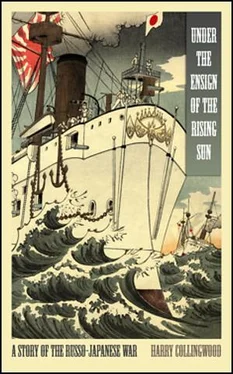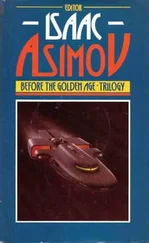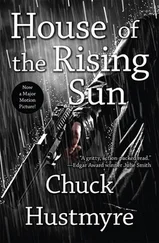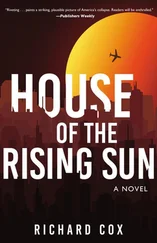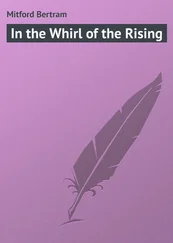Harry Collingwood - Under the Ensign of the Rising Sun
Здесь есть возможность читать онлайн «Harry Collingwood - Under the Ensign of the Rising Sun» весь текст электронной книги совершенно бесплатно (целиком полную версию без сокращений). В некоторых случаях можно слушать аудио, скачать через торрент в формате fb2 и присутствует краткое содержание. Год выпуска: 1916, Жанр: nonf_military, на английском языке. Описание произведения, (предисловие) а так же отзывы посетителей доступны на портале библиотеки ЛибКат.
- Название:Under the Ensign of the Rising Sun
- Автор:
- Жанр:
- Год:1916
- ISBN:нет данных
- Рейтинг книги:4 / 5. Голосов: 1
-
Избранное:Добавить в избранное
- Отзывы:
-
Ваша оценка:
- 80
- 1
- 2
- 3
- 4
- 5
Under the Ensign of the Rising Sun: краткое содержание, описание и аннотация
Предлагаем к чтению аннотацию, описание, краткое содержание или предисловие (зависит от того, что написал сам автор книги «Under the Ensign of the Rising Sun»). Если вы не нашли необходимую информацию о книге — напишите в комментариях, мы постараемся отыскать её.
Under the Ensign of the Rising Sun — читать онлайн бесплатно полную книгу (весь текст) целиком
Ниже представлен текст книги, разбитый по страницам. Система сохранения места последней прочитанной страницы, позволяет с удобством читать онлайн бесплатно книгу «Under the Ensign of the Rising Sun», без необходимости каждый раз заново искать на чём Вы остановились. Поставьте закладку, и сможете в любой момент перейти на страницу, на которой закончили чтение.
Интервал:
Закладка:
Nobody spoke, but all eyes wandered round the cabin, searching for a possible speaker. The Admiral’s eye met mine, and I thought there seemed to be a question in it. As nobody else seemed inclined to speak, I decided to answer that questioning glance.
“There is just one remark which I should like to make, sir, if I may be permitted,” I said. “I had not the good fortune to be present when the Japanese last met the Port Arthur fleet, less than two months ago; but from all that I have heard with regard to that meeting, I gather that there would have been no Port Arthur fleet to-day, had not you, sir, been too eager to meet them, revealing your presence to them at such an early moment that retirement to Port Arthur was still possible for them. If that be the case, the obvious lesson to be learnt seems to be that we should on no account show ourselves until the Russians have run too far off-shore to get back again before we can intercept them; and I would also suggest the desirability of taking steps to effectually cut off their retreat.”
Togo nodded and smiled.
“Gentlemen,” he said, “you have all heard Captain Swinburne’s remarks. Have any of you anything to add to them, or any comment to make upon them?”
For a moment there was silence. Then Captain Matsumoto, commanding the Fuji , stepped forward.
“I should like to say, sir,” he said, “that I entirely concur in what Captain Swinburne has said. Unlike that gentleman, I had the honour to be present on the occasion to which he refers, and I believe all present—including yourself, sir—will be inclined to agree that the honourable captain has put his finger upon the two causes which then combined to render the escape of the Russian fleet possible.”
A low murmur of assent followed; and when it died away, Togo spoke.
“I thank you all, gentlemen,” he said, “for the expression of opinion to which I have just listened. I agree that a mistake was made upon that occasion, and it was I who made it. But that mistake will not be repeated, you may rest assured. I recognised my mistake when it was too late to amend it, and I have now made my plans accordingly. Has any one else any suggestion to offer?”
There was no response.
“Very well, then, gentlemen,” resumed Togo. “Our conference is at an end. Return to your ships, and get your anchors at once. We will proceed to sea forthwith; and may Hachiman Sama,” (the Japanese god of War) “be with us to-day and crown our arms with victory!”
A moment’s silence followed, and then the cabin rang with the exultant shout of “Banzai! Banzai Nippon!” instantly taken up by the crew out on deck, who heard it, and as instantly repeated by the crews of the other ships, as the sound of the cheering reached them. Then, one after another, we filed past the Admiral, who shook hands with each of us as we passed out of the cabin; and ten minutes later the harbour was resounding with the clank of chain cables being hove in through a fleet’s hawse-pipes and stowed away below.
Chapter Eighteen.
THE BATTLE OF THE YELLOW SEA.
It was still quite early—half-past six o’clock in the morning, to be exact—when a gun from the Mikasa and a string of flags, drooping from the end of her signal yard in the breathless calm of a hot August morning, gave the signal for the Japanese fleet to go forth to battle.
In accordance with the Admiral’s instructions, the Yakumo was to lead the way to sea, and it was a proud moment for me when, standing upon the cruiser’s navigating bridge, I personally rang down the order to the engine-room, “Ahead, half-speed, both engines!” And I considered—and still consider—that I had every reason to be proud; for here was I, a lad not yet quite nineteen years of age, captain of one of the finest and most formidable cruisers in the Japanese navy. And I had attained to that position—I may say it now, I think, without laying myself open to the charge of being unduly vain—solely by my own exertions and without a particle of favour shown me, excepting that, when my own country contemptuously dispensed with my services, the aliens whom I was now serving received me with the utmost courtesy and kindness. Ah, well! thank God, that bitter period in my life is past now, and I can bear to look back upon it with equanimity, but the memory of it often swept down upon me like a black cloud in the days of which I am now writing.
But there was no thought of my unmerited disgrace and ruined career in my own country to interfere with my happiness or humble my pride upon that glorious morning; I enjoyed the satisfaction of knowing that my innocence had been made clear, that the stain of guilt had been removed from my name, and I was as happy just then as I suppose it is ever possible for mortal to be.
And indeed, quite apart from matters of a purely personal nature, it would have been very difficult for any normal-minded individual to have been otherwise than buoyant upon that particular morning, for everything conspired to make one so. The weather was glorious; the sky, a clear, rich sapphire blue, was, for a wonder, without a cloud, the air was so still that until we got under way and made a wind for ourselves the signal flags drooped in motionless folds, and their interpretation was largely a matter of guesswork. Then there was all the pomp and circumstance of modern war, the ships already cleared for action, and each of them decorated with at least two enormous battle-flags—wrought by the dainty fingers of Japan’s fairest daughters—flaunting defiantly from her mast-heads. It must have been a magnificent sight to behold that proud fleet steaming out to sea, ship after ship falling into line with machine-like precision and keeping distance perfectly, first the squadron of cruisers, led by the Yakumo ; then the other five armoured cruisers, with the Asama in the van; then the four battleships—accompanied by the Nisshin and Kasuga , which were powerful enough to take their place in the line of battle—and, finally, the swarm of heterogeneous craft composed of the older and less important cruisers and other vessels, and those wasps of the sea, the destroyers.
The Yakumo had scarcely begun to gather way when the flagship signalled “Course South-West by South; speed twelve knots.”
As our signalman ran up the answering pennant, I entered the chart-room and, approaching the table, upon which a chart of the Yellow Sea lay spread out, requested Mr Shiraishi, the navigating lieutenant, to lay down a South-West by South course upon the chart, that we might see where it would take us. He did so, and I saw with satisfaction that it would take us some twenty-five miles to the eastward of Encounter Rock, that unfortunate spot near which the Japanese fleet had too prematurely revealed its presence upon the occasion of its previous encounter with the Russians. Twenty-five miles! That was excellent. If we held on upon that course we should cross the bows of the Russians at such a distance as would enable us to pass unseen, and then come up from the southward in the enemy’s rear, so cutting him off from Port Arthur and rendering it impossible for him to avoid a fight.
Shortly after clearing the harbour, the Asama and her attendant cruisers parted company with us, striking off to the westward, with the object of working round in the rear of the Russians, and again I mentally complimented Togo upon his astuteness.
Nine o’clock came, and a few minutes later there arrived a wireless message from the Admiral for our squadron to change course thirty-four degrees to the westward. I wondered what this might portend, for we had been receiving almost continuous wireless messages from the squadron off Port Arthur, the latest of which told us that the Russians, although undoubtedly intending a sortie, had not yet started. I again visited the chart-room, and with Shiraishi’s assistance discovered that our new course would bring us within about seven miles south-east of Encounter Rock about noon.
Читать дальшеИнтервал:
Закладка:
Похожие книги на «Under the Ensign of the Rising Sun»
Представляем Вашему вниманию похожие книги на «Under the Ensign of the Rising Sun» списком для выбора. Мы отобрали схожую по названию и смыслу литературу в надежде предоставить читателям больше вариантов отыскать новые, интересные, ещё непрочитанные произведения.
Обсуждение, отзывы о книге «Under the Ensign of the Rising Sun» и просто собственные мнения читателей. Оставьте ваши комментарии, напишите, что Вы думаете о произведении, его смысле или главных героях. Укажите что конкретно понравилось, а что нет, и почему Вы так считаете.
